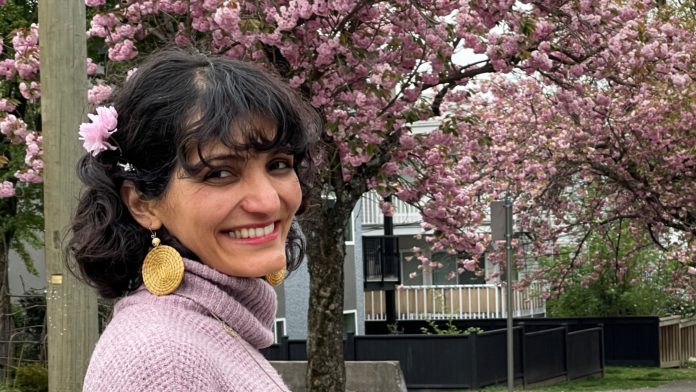Dena Shahriari is an Assistant Professor at the School of Biomedical Engineering at UBC. Her research involves both engineering and medicine in pursuit of tackling major disabilities. We asked her everything from her admiration for the poet Ferdowsi Tusi to her mother being the inspiration for her career direction in hopes of giving you a better understanding of what goes on outside the lab for one of the best minds in Canadian research.
What do you like most about being a researcher?
The intellectual freedom. It is a privilege and a true joy to be able to choose and pursue a field that you are intrigued by andthi to make a difference in that area.
What advice would you give young researchers?
I suggest picking a research topic that you care about and is impactful. Don’t be afraid to explore new areas and be challenged. You just ought to be determined, work hard, and seek mentors and peers who will support you along the way.
What inspired you to become a researcher?
I grew up routinely hearing about all kinds of medical conditions and surgical procedures from my mother who worked in the operation room at a hospital. I knew early on that I wanted to make a difference in the medical field. However, it took years to figure out exactly what career path to choose.
What do you like to do for fun?
I am a fan of the outdoors and water activities. Biking, hiking, and kayaking are my routine hobbies. Also, my mind clears when I swim, which I do regularly.
What’s your favourite cuisine?
Indian. I especially appreciate the variety of healthy vegetarian and vegan options that Indian cuisine offers.
If you could do any profession other than your own, what would it be?
Neurosurgery. This is what I thought I would pursue growing up.
If you could meet any historical figure, who would it be and why?
Ferdowsi Tusi. He was a Persian poet and the author of the magnificent masterpiece of Shahnameh. Shahnameh is one of the longest epic poems of all time. Ferdowsi patiently took 35 years to finish Shahnameh, which includes over 60,000 couplets. But most importantly, Shahnameh may very well be the reason the Parsi language did not go extinct.
Following the invasions, it was ordered that Parsi may no longer be spoken. However, the much-too-captivating poems and stories of Shahnameh continued to be told by the people, and so the language has stayed alive. Like most historical figures, Ferdowsi did not receive the recognition he so well deserved in his lifetime, and he also lived in poverty. As a Persian and an admirer of poetry, I have much appreciation for the great Ferdowsi Tusi.








































